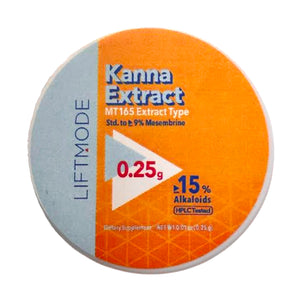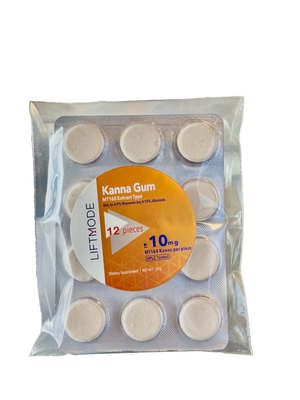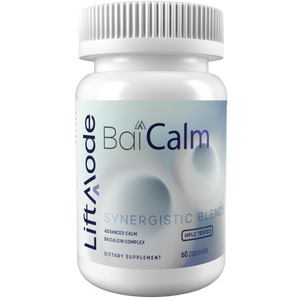Green Tea Extract
- Powerful Antioxidant and Anti-Inflammatory
- Supports a Healthy Circulatory System
- Promotes a Strong Metabolism
Abstract
Green Tea Extract offers some of the strongest plant-based health-promoting compounds available today. Strong antioxidant and anti-inflammatory effects, combined with potent thermogenic benefits make this produce an ideal choice for anyone looking to support a healthy body. It is especially useful for promoting a healthy circulatory system and supporting a strong metabolism. The recommended serving size is 500 – 1000mg, taken once to twice per day. It is not recommended to exceed this serving suggestion. At large servings, side effects may include headache, nervousness, sleep problems, nausea, irritability, heartburn, dizziness and confusion. Do not use this product if you have any underlying medical conditions or are taking any medication.- Green tea extract is made from Camellia sinesis and is composed primarily of polyphenols, catechins and EGCG
- It produces numerous health-promoting benefits, including powerful antioxidant effects, support for a healthy circulatory system and a healthy metabolism, as well as potent anti-inflammatory effects.
- The recommended dose for a strong green tea extract is around 500 – 1000 mg, taken once to twice daily
- Side effects of green tea extract are due to its potency and may include headache, nervousness, sleeping problems nausea, irritability, heartburn, dizziness and confusion.
Green Tea Extract Reviews
“This product is strong, with a strong flavour. It takes getting used to, but once you figure it out, the benefit is that its very concentrated, and so the antioxidant properties may work faster. I feel the cleansing effects immediately, on my tongue and also in my stomach. This jar of tea will last long, because its huge. I suggest mixing two scoops with a whole lemon, a tablespoon of honey and about 4oz of warm water (dissolves better in warm water.)” – Adekemi, LiftMode user review “This product has too many benefits to list. I decided to try this product to supplement my weight loss regimen. I’d hit a block and was unable to shed additional pounds after a certain point. It certainly helped me resume my weight loss and I’ve lost about 20 pounds since starting it. I’ve tried a variety of weight loss supplements and supplement combinations in the past but nothing has worked so well with very few if any side effects...” – Brad V, LiftMode user reviewBackground
Green tea (Camellia sinensis) is probably the most widely consumed drink in the world, second only to water. It is the basis for all other ‘black’ or Ceylon teas. Tea has been consumed around the world for thousands of years. Early preparations originated in Asia and quickly spread to Europe and the rest of the world. Asian cultures still revere the healing properties of this amazing plant. In recent years, the active components of this amazing plant extract have been studied in great depth, in both Western and Eastern research facilities. Researchers are still developing further knowledge about the great many benefits that these compounds have on the human body. The main active constituents of this extract are the polyphenols, which include catechins, theaflavins, tannins, and flavonoids. Of these, the catechins are thought to be the most beneficial.[1] It is now well established that this amazing plant has relevant benefits to humans, by acting on different systems in the body.[2] Extracts are a more potent version of a simple tea, and are a far more concentrated source of beneficial phytochemicals. Some of the most important benefits of this supplement include powerful antioxidant effects, the ability to support a healthy circulatory system and a healthy metabolism, as well as its powerful anti-inflammatory effects. EGCG (epigallocatechin-3-gallate) is one of the most important constituents of a Green Tea Extract. It has been found to be the most powerful of all the polyphenols in terms of its effects on human health. Researchers are currently studying its potential for use in a more professional setting.[3] Some people wonder about the differences between green and black tea. Both are made from the same plant, Camellia sinensis. The key differences is that black tea is fermented, while green is not. The fermentation process required for making black tea destroys many of the polyphenols, especially EGCG, which is very fragile.[4] This makes green tea the preferred choice for health-promoting benefits.Green Tea Extract Effects & Benefits
1. Antioxidant Effects
Studies have shown that the polyphenol constituents of this supplement are highly effective as natural antioxidants.[5] Antioxidants are highly beneficial to the body and help to maintain a healthy circulatory system. In layman’s terms, antioxidants are used to destroy toxins. Some are produced in the body, and some can be consumed in the diet. Dietary antioxidants are found almost exclusively in plant-based foods like grains, fruits, vegetables, and herbs. Their benefits include the destruction of oxidized free radicals like superoxide, which are carcinogenic and mutagenic; and the removal of low-density lipoproteins (LDLs), which are associated with negative effects of high cholesterol.[6] ‘Free radicals’ are formed from natural processes in the body. They are chemically reactive and have a free electron, which means that they can react with almost any compound in the body. The danger is when free radicals interact with DNA, where they can cause mutations.[7] If left unchecked, these mutations may have the potential to develop further. Lifestyle factors like smoking, drinking, unhealthy dietary choices, and living in polluted environments can increase the levels of free-radicals in the blood. Antioxidants are called free-radical ‘scavengers’. As they work through the body, antioxidants absorb the extra electrons on free-radical species, preventing this reaction from occurring in dangerous places like cellular or mitochondrial DNA. [8] Antioxidants are also beneficial in helping the body to eliminate low-density lipoproteins (LDLs), which are commonly referred to as the ‘bad’ cholesterol. LDLs are found predominately in animal-based foods. High levels of LDL cholesterol, combined with high levels of triglycerides (made from excess fat in the diet) are a risk factor for developing heart disease.[9] LDLs build up in the arteries and cause plaques. They can also damage the circulatory system through inflammation. Antioxidants, such as those found in Green Tea Extract, have been found to be effective at reducing LDL levels in humans.[10]2. Helps to Support a Healthy Circulatory System
The polyphenols found in this supplement are highly beneficial for supporting a healthy circulatory system. These compounds are able to protect the heart and circulatory system through several mechanisms, which are already fairly well established.- Antioxidant benefits means that the active compounds in this supplement are able to scavenge free radical, chelate redox active transition-metal ions, inhibit redox active transcription factors, and inhibit pro-oxidant enzymes.
- The catechins are known to inhibit key enzymes in lipid (fat) biosynthesis and to help improve the blood lipid profile.
- Catechins activate nitric oxide in the endothelial cells. Nitric oxide acts as a vasodilator, which means that it increases the diameter of blood vessels, improving blood flow through the body.
- Anti-inflammatory effects of polyphenols help to protect arteries and capillaries against inflammation and plaque formation. [11]
3. Anti-inflammatory effects
Inflammation is the body’s response to stress. It is the body’s defence mechanism and begins the healing process when the immune system detects stresses like damaged cells, irritants, and pathogens. Without inflammation, our bodies would not be able to defend against illness, disease, infections, or wounds. However, both persistent, long-term inflammation and severe acute inflammation can be harmful to the body. Inflammation often causes unwanted symptoms like pain, redness, stiffness, distress, and swelling. As a result, doctors often prescribe anti-inflammatories when we are sick. Importantly, inflammation can also occur within the circulatory system, where it is often symptomless. Inflammation in the circulatory system is often a result of lifestyle choices such as a lack of exercise, unhealthy diet, binge drinking, or living in a polluted area. It may also have a generic component. Inflammation of the circulatory system can contribute to weakened arteries and blood vessels, and may damage the heart. In several studies, the polyphenols isolated from Green Tea Extract have been shown to reduce inflammation. In these studies, researchers use chemical agents that are known to produce inflammation and then try to see how well a variety of phytochemicals (like polyphenols) can prevent it.[12] Over the years, most of these studies have attested to the anti-inflammatory benefits of the compounds found in this supplement, establishing it as one of the best-known natural anti-inflammatory supplements available today.[13]4. Supports a Healthy Metabolism and Weight
Green Tea has long been known for its effects on metabolism and weight. In Eastern countries, it has been used for centuries as a health-promoting and weight-supporting drink. The extracted polyphenol simply offer a more concentrated form. A variety of studies have looked into the effects of Green Tea on metabolism and weight, including the following. In a 2008 study, researchers investigated the effects of Green Tea on weight reduction in obese Thai people. Sixty participants (body mass index (BMI) > 25 kg/m2) were enrolled in the controlled trial. The researchers set out a controlled diet that was eaten by all the participants (as a control). Body weight, BMI, body composition, resting energy expenditure, and substrate oxidation were all measured at the start, and during weeks 4, 8, and 12 of the study. The results showed differences between the placebo group and the active group in all data recorded. Significant differences were found between the groups in body weight loss and energy expenditure. The researchers concluded that the drink could help improve body weight by increasing resting energy expenditure.[14] In a similar, more recent study, researchers examined the effect of Green Tea Extract on resting metabolism rate and energy expenditure. In the 2013 review, scientists looked at numerous published articles relating to this supplement and how it affects metabolism. The results showed that there were some inconsistencies, mainly due to bioavailability and different means of measuring resting metabolism. Overall, the majority of studies point to an increase in fat oxidation and metabolic rate, at rest, after consuming this supplement. [15] In one interesting study, researchers found that this incredible plant extract may have the ability to limit the uptake of glucose (sugar) in the intestine. This would mean that less sugar would enter into the body, which could clearly have a beneficial effect on weight. Researchers found that the intestinal glucose transporter, SGLT1, was markedly inhibited by the polyphenols in Camellia sinensis.[16]5. Other Potential Benefits
Aside from the above-mentioned benefits, which have already been well-established, researchers are looking further into other potential benefits of this supplement. Much of this research is still in the preliminary phases, but it gives some indication of the incredible healing power of this ancient plant extract! Synergistic relationship with caffeine Researchers are looking into the synergistic relationship between polyphenol catechins in Camellia sinensis and caffeine for thermogenesis (production of heat in the body due to an increase in metabolism). Previously, people used to think that the thermogenic effects of Green Tea were due to the caffeine content alone. However, new research shows that this isn’t so. In fact, the interaction between catechins and caffeine helps to release extra norepinephrine and results in a significantly greater increase in metabolic rate than either alone. [17] May help to promote healthy skin Recent studies have looked into the potential for polyphenols to support clear and healthy skin. Skin damage tends to be a result of exposure to UV rays, which causes immunosuppression, oxidative stress, and premature aging. Researchers have found that Green Tea Extract may be able to support healthy skin, through its antioxidant and anti-inflammatory actions in the body.[18] Research into antimicrobial applications Several recent studies have produced research into the potential future use of polyphenols and catechins for antimicrobial benefits. In a review article published in the prestigious Frontiers in Microbiology, research indicated that this supplement and its constituents may have the potential to be further developed for antimicrobial actions, especially against certain common forms of pathogenic bacteria. [19]Green Tea Extract Recommended Usage
Herbal and plant extracts can sometimes be confusing when it comes to getting the serving size right. This is because many extracts are not properly standardised, or have undefined concentrations of active constituents. This supplement contains 98+% polyphenols and represents a very strong, properly standardised extract. As a result, only a small serving is required for optimal effects. The recommended serving size is 500 – 1000 mg, taken once to twice daily. This supplement may have a wakefulness-promoting effect on some people, so it is may not be recommended to take it in the evening, in case it interferes with sleep.Green Tea Extract Side Effects & Warnings
Side effects of Green Tea Extract tend to be mild and rare. As the serving size is increased, so are the chances of experiencing unpleasant adverse effects. This supplement is a powerful natural plant extract and should be used responsibly. At large servings, side effects may include headache, nervousness, sleep problems, nausea, irritability, heartburn, dizziness and confusion. [20] There is some evidence that large servings of this supplement could put stress on the liver. People with liver problems, diabetes, bleeding disorders, or any underlying medical condition should speak to their doctor before using this product. Do not use this supplement if you are taking any medication as there may be interactions, some of which could be dangerous. There is limited research into the safety of this supplement for pregnant and nursing women. Please speak to your doctor before using this supplement.Conclusion
In summary, this supplement contains a high concentration of polyphenols which include powerful catechins and EGCG. Green tea is one of the world’s healthiest drinks, and the active components have several well-researched benefits for human health. When taken as a dietary supplement, this product acts as a powerful antioxidant and anti-inflammatory, helping to support a healthy circulatory system. This potent plant extract also has great benefits on the metabolism and may help to support a healthy weight. It has been researched for a variety of possible future applications and there is still further research being conducted today. The recommended serving size for this supplement is 500 – 1000mg, taken once to twice per day. It is not recommended to exceed the suggested serving size. Large servings may put stress on the liver. Side effects of large servings may include headache, nervousness, sleep problems, nausea, irritability, heartburn, dizziness and confusion. Do not use this product if you have any underlying medical conditions, are taking any medicine, or are pregnant or nursing.Medical Disclaimer
Not intended to treat, diagnose, or cure any disease or ailment. Please read and fully understand potential adverse effects before using this product. These statements have not been reviewed by the FDA and are not written by a medical professional. Please consult your doctor before using any supplements, especially if you have any medical conditions.
Tristan
B.Sc. in Molecular Biology and Biochemistry Researched & written by Tristan and verified by the Liftmode.com Research Team




